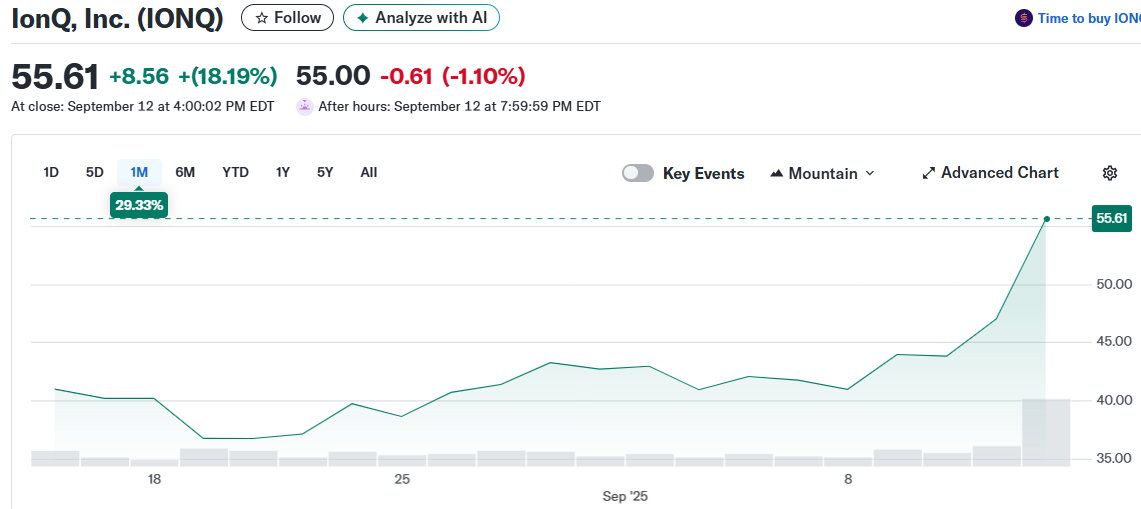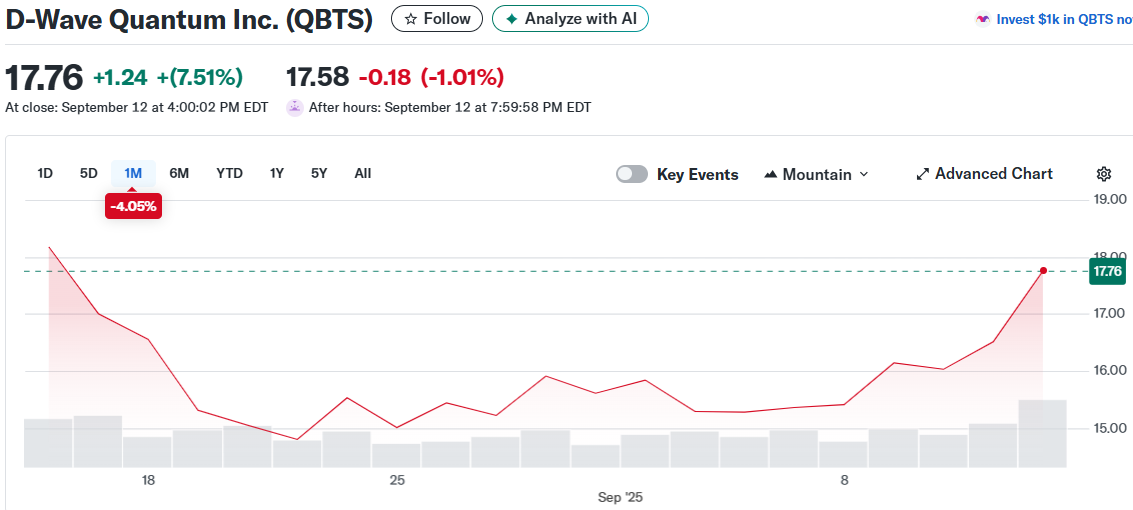The quantum computing race has two clear camps emerging. Tech giants use expensive superconducting systems while innovative startups pursue different approaches that could reshape the industry.
IonQ and D-Wave Quantum represent the most promising alternative quantum technologies. Both companies avoid the superconducting methods favored by Alphabet, Microsoft, and IBM. Their different strategies could provide competitive advantages in the growing quantum market.

Most quantum systems require cooling particles to near absolute zero temperatures. This superconducting approach delivers fast processing but creates huge infrastructure costs. The systems also struggle with accuracy issues that limit commercial applications.
IonQ takes a different path with trapped ion quantum computing. The technology operates at room temperature instead of requiring expensive cooling systems. This approach achieves higher accuracy rates than superconducting competitors.
The company provides quantum access through major cloud platforms including AWS, Microsoft Azure, and Google Cloud. IonQ offers multiple qubit capacity systems to serve different customer needs. Cloud delivery makes quantum computing accessible to more businesses.
D-Wave focuses on quantum annealing technology for optimization problems. The method finds lowest energy states within complex systems. This makes D-Wave systems ideal for logistics, supply chain, and resource allocation challenges.

Pure-play quantum companies face unique market pressures compared to diversified tech giants. They depend entirely on quantum success without backup revenue streams. This creates focused development efforts that could accelerate innovation.
IonQ and D-Wave rely on research contracts and public market funding for operations. Limited resources force efficient development approaches. The pressure could drive faster commercial breakthroughs than well-funded competitors.
Tech giants spread quantum investments across multiple technology areas. Their diversified approach reduces risk but may slow quantum-specific progress. Focused quantum companies dedicate all resources to advancing their core technology.
IonQ’s room temperature operation eliminates major infrastructure costs. Traditional superconducting systems need complex cooling equipment that increases operational expenses. Lower overhead could make IonQ quantum services more affordable for customers.
The trapped ion method also delivers superior accuracy compared to superconducting alternatives. Better precision makes quantum calculations more reliable for real-world applications. Higher accuracy could accelerate commercial quantum adoption.
D-Wave’s quantum annealing excels at specific problem types that represent huge market opportunities. Optimization challenges exist across industries from transportation to finance. Specialized quantum solutions could capture large market segments.
Both companies target market niches that major tech firms currently underserve. This strategy allows smaller players to establish positions before giants expand coverage. Early market leadership could translate into long-term competitive advantages.
Recent trading data shows increased investor interest in quantum computing stocks. IonQ, D-Wave, and competitors posted high trading volumes as market attention grows. Rising investment flows indicate growing confidence in quantum commercialization timelines.
The quantum computing sector remains in early development with no clear market leader established. Different technical approaches may serve distinct applications as commercial markets mature. Alternative technologies could prove more practical than current industry standard methods.
The post Best Quantum Computing Stocks To Buy Today appeared first on CoinCentral.
Also read: Shibarium Bridge Falls Victim To $2.4 Million Drain Attack – Details